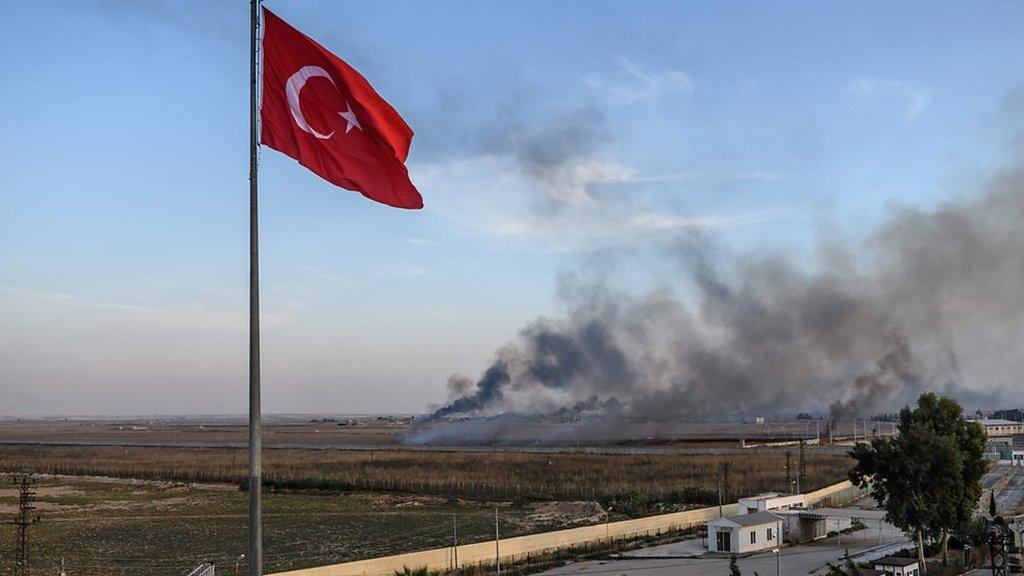Turkish drone fuels tension over Cyprus gas claims
- Published
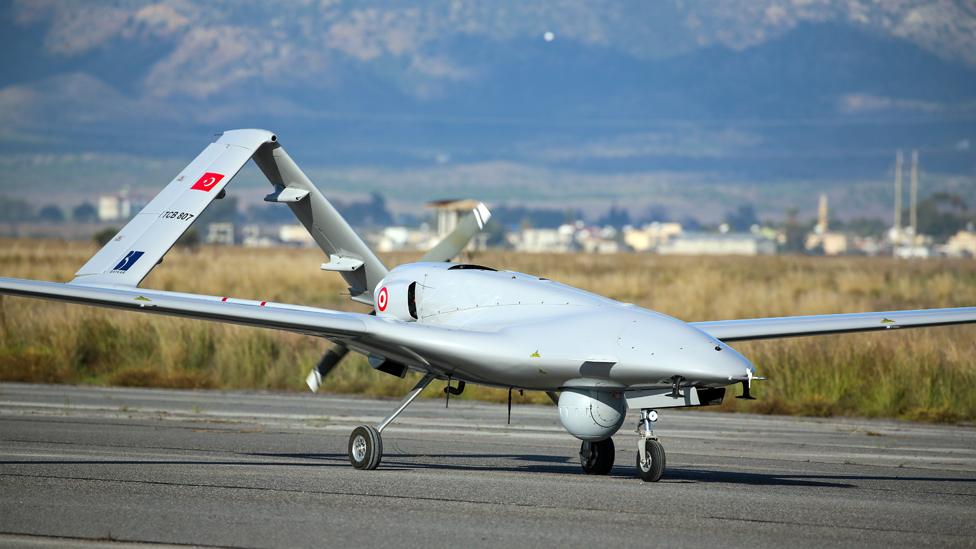
The Bayraktar TB2 armed drone is now at Gecitkale airbase in Famagusta
A Turkish military drone has arrived at a base in Turkish-backed northern Cyprus to help controversial gas exploration projects near the island.
A Turkish military official said the drone would escort its drilling ships. There are two - the Fatih and Yavuz - in the area, despite strong criticism from Cyprus and its EU partners.
Turkey alone recognises the self-styled Turkish Republic of Northern Cyprus.
The Republic of Cyprus, Greece and Israel are also exploring for gas.
In July a new "East Mediterranean Gas Forum" (EMGF) was launched by those three countries, plus Egypt, Jordan, Italy and the Palestinian Authority. However, Turkey was excluded.
The Eastern Mediterranean is reckoned to be rich in natural gas: the US Geological Survey estimates the deposits to run into trillions of cubic metres, worth hundreds of billions of dollars, besides millions of barrels of oil.

Read more on related topics:
Last month, Turkey and the UN-recognised Government of National Accord (GNA) in Libya signed an agreement on maritime boundaries in the region.
The Memorandum of Understanding aims to protect the rights of both countries against any "illegal" encroachments by other players in the region.
In a separate memorandum, Turkey and the GNA agreed on military co-operation. Turkish President Recep Tayyip Erdogan said his government was "ready to provide all kinds of support to Libya". He met GNA leader Fayez al-Sarraj in Istanbul on Sunday.
The GNA is fighting an insurgency by forces under Gen Khalifa Haftar based in eastern Libya.

Energy rivalry in the Eastern Mediterranean
The BBC's diplomatic correspondent Jonathan Marcus writes:
Energy diplomacy - the need for countries to come together to exploit the undersea resources of the Eastern Mediterranean - promises new co-operative relationships. But as Turkey's recent actions show, it also risks exacerbating existing divisions.
Turkey has long challenged the Republic of Cyprus government's exclusive drilling rights in the region. Turkey is now stepping up oil and gas exploration of its own. But it has wider ambitions too.
Turkey's deal with the Libyan government in Tripoli extends Ankara's claimed exclusive economic zone (EEZ) to touch that of Libya. This effectively cuts off Israel, Egypt, Cyprus and the Palestinians from Greece and Italy, threatening planned energy pipeline projects in the region.
Egypt objected. Greece expelled the Libyan ambassador and received support from the EU.
Turkey feels that existing deals threaten a kind of economic encirclement. But without an agreement enabling everyone to exploit the gas resources, the Eastern Mediterranean threatens to become a new flashpoint.

The Republic of Cyprus argues that Turkey has no right to drill for hydrocarbons off its coast.
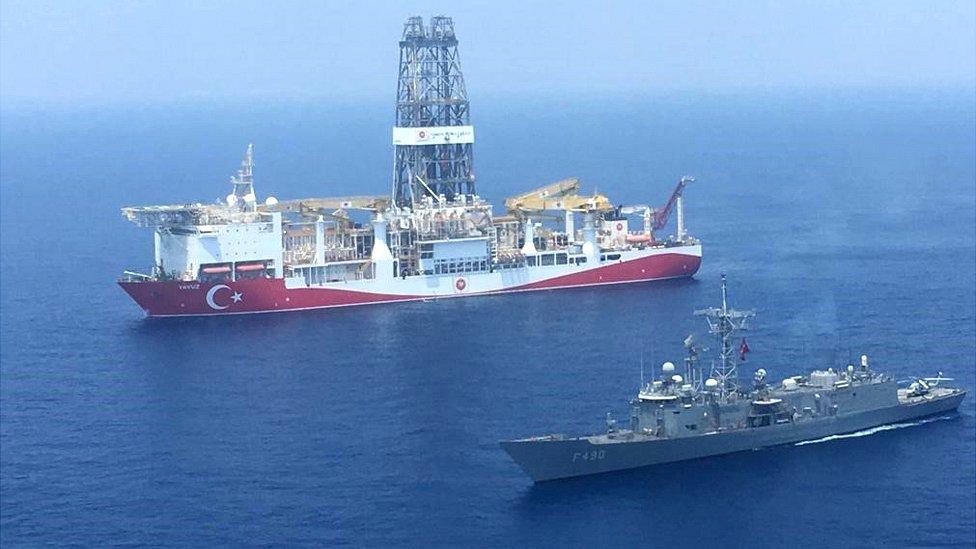
The drilling ship Yavuz escorted by a Turkish warship off Cyprus (11 Jul 19)
Turkey says its drilling operations are taking place inside its continental shelf, and therefore comply with international law.
The Greek- and Turkish-Cypriot communities have been separated by a UN buffer zone since 1974, when Turkey invaded the north of the island in response to a military coup in Cyprus backed by Greece.
Turkish anger at US
In a further controversial move, President Erdogan warned on Sunday that Turkey could "if necessary" close two key military bases used by US forces: Incirlik and Kurecik.
Incirlik has been heavily used by US aircraft for raids against Islamic State (IS) militants in Iraq and Syria, while Kurecik houses a Nato radar installation.
Mr Erdogan's comments came after the US threatened sanctions on Turkey over its purchase of Russian S-400 anti-aircraft missiles. Russia began delivering the system in July.
Turkey is also angry about a vote in the US Senate last week that recognised the 1915 mass killings of Armenians by Ottoman Turks as genocide. It followed a similar resolution approved by the House of Representatives in October.
Mr Erdogan called the congressional votes "completely political" and lashed out at the West's "history of racism and colonialism".
Turkey denies that there was a systematic campaign to slaughter Armenians as an ethnic group during World War One.
- Published8 August 2019
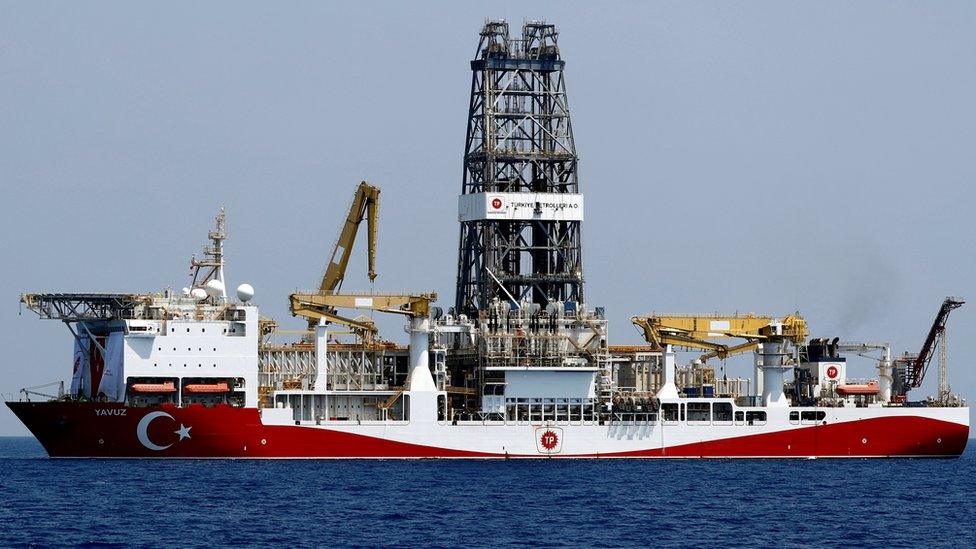
- Published16 January 2019
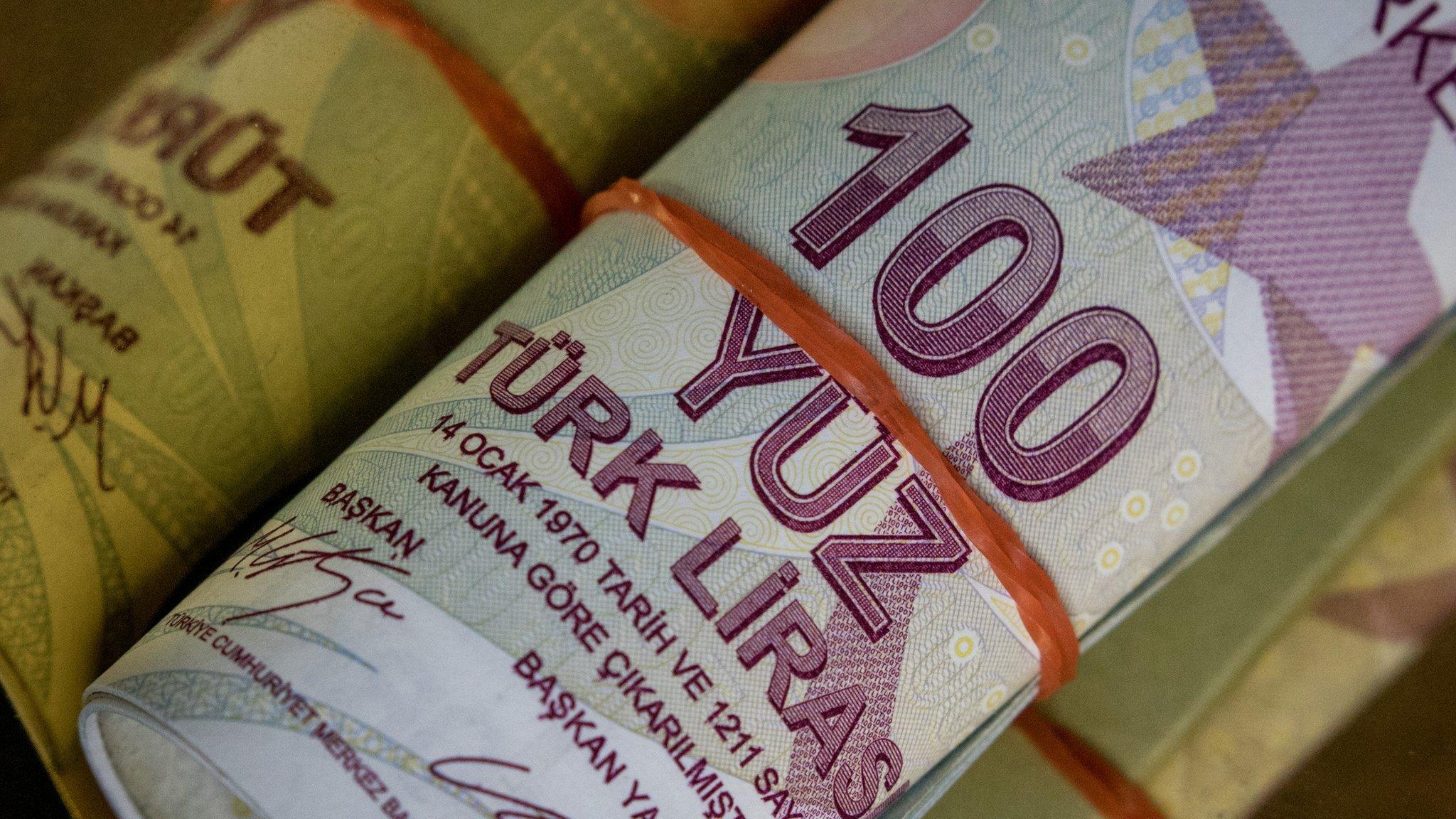
- Published10 October 2019
